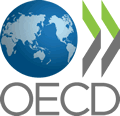Empowering women through financial awareness and education
The potential implications of gender differences in financial literacy are far-reaching. On 1 March 2012, the OECD published a Working Paper on “Empowering Women Through Financial Awareness and Education“.
Overview
This working paper describes the findings of a review of the literature on gender differences in financial literacy with the aim to better understand their causes and consequences, as well as possible policy responses. It provides a starting point to collect further evidence, develop analytical work and case studies, and to identify areas that deserve further research, thus paving the way for future work to be developed by the Organisation for Economic Co-operation and Development and the International Network on Financial Education (INFE).
A relatively broad range of empirical literature documents the existence of gender differences in financial literacy in various countries and along several dimensions. On average, women perform worse than men on tests of financial knowledge and have less confidence in their financial skills. However, so far policy awareness of the existence and relevance of these differences is quite low.
The literature (albeit so far limited) on what drives such gender differences points to several potentially complementary explanations including differences in skills, attitudes, and opportunities. In this context, the contribution of improved and targeted financial education programmes aimed at better addressing women’s needs is promising and worth exploring further.
See Also
- Access to Education
- Gender Equality and Financing for Development
- The Financial Women%27s Association (FWA)


